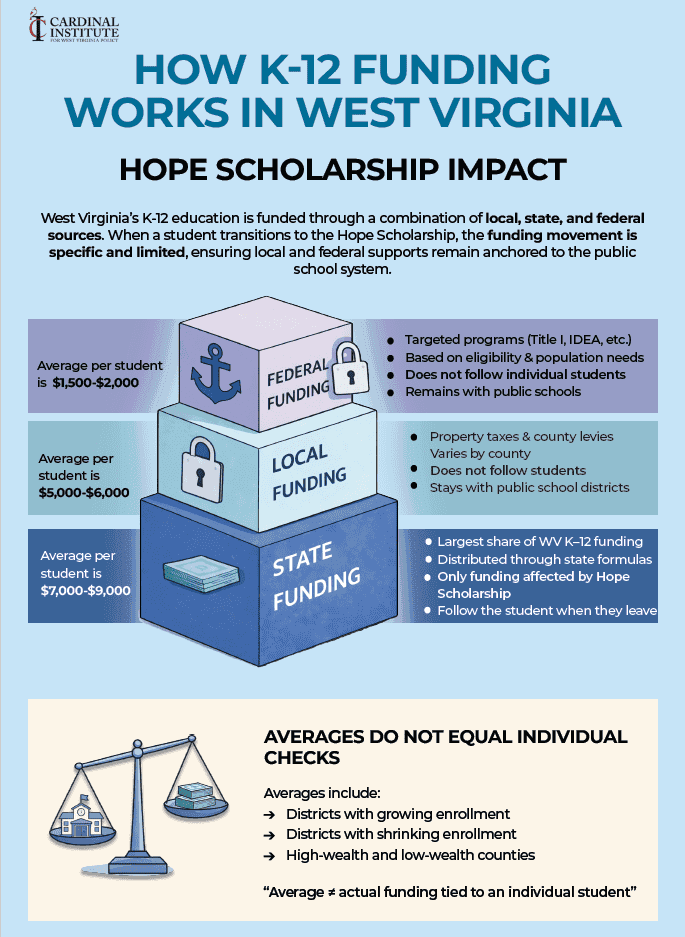
Audits and Good Governance
Good Governance & Finance
Audits are not sexy. They are not even exciting, enticing, or exhilarating, however, what they are is . . . revealing.
A common talking point amongst fiscal conservatives and general free-market types is the need to cut spending and eliminate waste, fraud, and abuse in the budget. The Cardinal Institute even made its initial splash in the world with a landmark study looking at hundreds of millions of dollars in government bloat.
Why are waste, fraud, and abuse so important to fiscal conservatives?
It should be obvious, but the government does not create wealth, and it produces nothing that it does not take first from somewhere else. (Note: redistribution of wealth is not the same thing as creating wealth.) It is not in the profit business.
Every dollar of wealth or profit that ends up with the government was taken — under the threat of violence — from the dollar’s original creator. There is a huge opportunity cost for said dollar, as the creator can no longer save, spend, or invest the dollar as they see fit. The dollar is now subject to political whims and incentives which are nowhere near as valuable incentives as one finds in the free market. As economist Milton Friedman taught us, no one spends or invests someone else’s money as judiciously as they spend their own.
How Do We Know What Is Waste?
Unfortunately, what is one person’s “waste, fraud, and abuse,” can be someone else’s “fully funded” or “necessary spending” to achieve whatever nebulous aim one desires. It is often a clash of political philosophy rather than a black-and-white case of waste or abuse. Fraud is, normally, a little easier, but even that often requires intent to misspend.
Fiscal conservatives often find themselves arguing against what I call the “tyranny of the mission statement,” wherein you are not actually arguing against the efficacy or achievements of the spending, but, rather, the desired outcome of the spending.
To take but one example, the United States Department of Education’s mission statement: “ED’s mission is to promote student achievement and preparation for global competitiveness by fostering educational excellence and ensuring equal access.” Inevitably, debates around budget cuts descend into one side arguing that the agency has not lived up to its end of the bargain — American students’ test scores and global competitiveness have flatlined or regressed over the last several decades. The other side paints apocalyptic scenarios that things would be even worse with cuts or that giant fissures would erupt in the American education system cratering student achievement at large. After all, the US Department of Education’s mission is to “promote student achievement.”
Enter: audits.
Audits Are Revealing
Now, there will remain disagreements about the constitution of “waste,” but one must know where, when, why, and how money is spent before one can progress to the philosophical stage of argument. Without consistent audits of government spending, transparency becomes impossible, and fiscal conservatism becomes reduced to a tagline like “waste, fraud, and abuse.”
In October, the Office of the State Auditor for the State of Mississippi released a thorough audit of 13 state agencies titled, “Project Momentum.” The last performance audit that Mississippi completed was in the 1990s . . . that’s a full generation between performance audits for a multibillion-dollar operation that is the annual Mississippi budget. The report identified hundreds of millions of dollars in recommended streamlines to ease the burden on Mississippi taxpayers.
How Audits Impact The Conversation Around Government Spending
Let’s briefly discuss what an argument looks like with a performance audit and without a performance audit. To start with the latter, a fiscal conservative would say something like “We need to cut waste, fraud, and abuse in our Department of Human Services agency.” The retort: “Conservatives want to cut services for our most valuable populations.” If you’re reading this, you’ve probably seen political debates play out exactly like this.
What about when armed with a performance audit?
On page 29/30 of Mississippi’s audit, we have the following: “[A]dopting simplified reporting results in the same level of benefits delivered while reducing burden[s] on staff, and it would save the state $1.9M annually in administrative costs.” Now, fiscal belt-tighteners have a direct line item and are no longer arguing against “services for our most valuable populations,” and the tyranny of the mission statement fades. Mississippi’s audit report is very informative, and I highly recommend perusal for anyone interested in the inner workings of government finance.
West Virginia Needs Regular Audits
West Virginia’s next gubernatorial administration must put a plan in place for regular performance audits of the state’s largest agencies. Though expensive, auditory revelations often reveal substantial savings to the taxpayers. Experts recommend that states do regular audits on their largest 3-5 agencies on a revolving basis and couple the audit with a zero-based budgeting approach for each agency on a rotational basis.
Proper fiscal governance is critical to the long-term fiscal health of the state, and a smart audit-based strategy will play a critical role.








